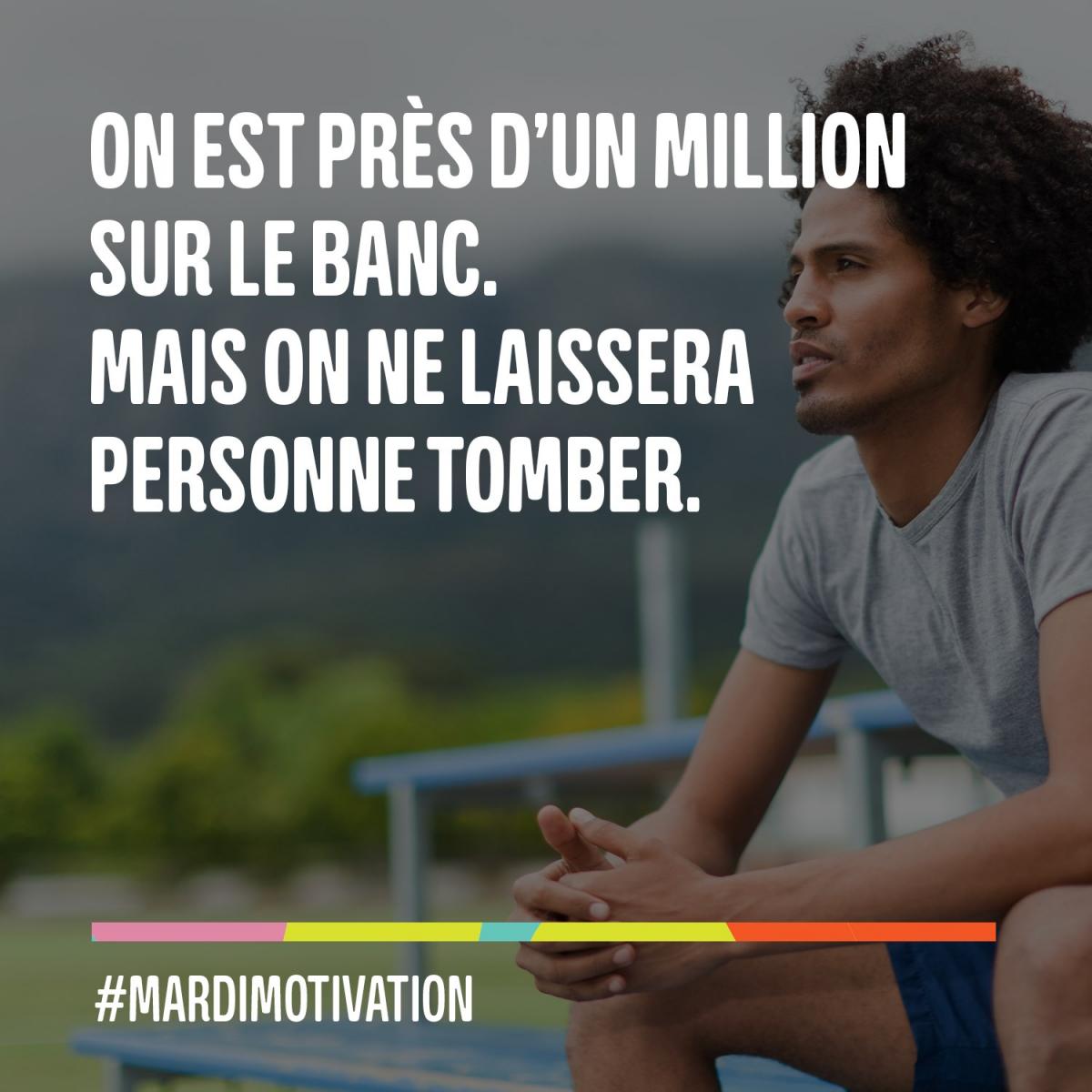NOVEMBER 2020 - HEALTH AND SECURITY

Emptiness, a challenge for young athletes
Article by Josie-Anne Taillon
Interview with Amélie Soulard, Sport’Aide
Radio-Canada
The second pause in the practice of organized sports in Quebec continues to shake up young athletes and their entourage.
Beyond performance, many of them find themselves looking at an empty calendar, with no opportunities to see their friends with whom they share the same passion. For others, it can go as far as losing the environment where they feel most comfortable.
Sport'Aide, which looks after the well-being of Quebec athletes, is a witness to this via its support service. Athletes, but also their parents or coaches, can call, email or text this organization if they need help, and right now this is the case.
On October 5, Isabelle Charest, Deputy Minister of Education, announced that organized sport was suspended in red zone areas while taking that opportunity to remind of Sport'Aide existence.
"The press conference wasn't over yet but the phone was already ringing, says Sport'Aide's Executive Director Sylvain Croteau. We had dozens of interventions over those two days, and we reached peaks on our platforms. In the last 10 days, calls flared up again.”
However, this increase does not match that of last April when, in a matter of weeks, the organization's various platforms had peaks of more than 300,000 visits.
Sport'Aide was formed in 2018 to help athletes deal with issues of violence and harassment. Its mandate was expanded last March with government-imposed containment. Since its inception, Sport'Aide has conducted over 700 interventions with athletes and others.
Uncertainty, a great challenge
What shakes up the athletes is not much different from the rest of the population. Life turned upside down, uncertainty, sadness or disappointment. One of the first worries comes from emptiness.
"They have very busy agendas, training tomorrow at such and such a time, game on Saturday, and competition in a month," recalls Sylvain Croteau.
Psychologist and mental coach at the Institut national du sport du Québec (INS), Amélie Soulard agrees.
"They know exactly at what time they have to get up to train, to eat. Their schedule is very regulated, but when that schedule falls, they are faced with a void and have to be independent. Although this is something that we want to develop through sport, some of them are not very autonomous. It creates a difficulty in adapting and anxiety to find oneself dealing with a void.” - Amélie Soulard, psychologist and mental coach at the Institut national du sport du Québec.
Sport'Aide’s Executive Director raises another difficult aspect for young athletes, which is the lack of socialization.
"Not seeing their friends and coaches, or not being able to practice their sport and being with the people they love is difficult, he says. There's also a reality with our teens: for many of them, sport is the best place to be, either there or at school. And we're depriving them of a place, a moment of their own.”
Another thing not to be taken lightly about the second wave is that it could be combined with seasonal depression.
"I personally wonder if the diminishing brightness and the fact that we don't spend as much time outside anymore are not going to have an additional negative effect on our mood, wonders Amélie Soulard. Winter activities will be all the more important."
Sport: what I do, not what I am
The advice offered to athletes and their entourage is quite simple. Either to maintain a routine, keep in touch with their social circle, be it friends or coaches, or work more specifically on certain technical aspects of their sport. Another piece of advice that is hammered out is to diversify their hobbies or leisure activities.
"They say that you have to give yourself perspective, explains Amélie Soulard. Meaning to have several areas of accomplishment in our lives, rather than just one area, sport. It's an opportunity to realize that sport is what I do and not who I am, to question our athletic identity and to vary our activities."
Some athletes have not hesitated to apply this advice by taking additional courses in CEGEP or university. Some have even heard the desperate call from the government looking for health care personnel. As with the rest of the population, there is a need to give meaning to the pandemic, or even to one's life.
"Especially the second wave brings a questioning, according to the psychologist. What place do I want my sport to take in my life? Do I want it to continue to take up so much space? "
Asking for help, not always easy
If there are positive points to be made about the pandemic, it could be asserted that it has started a discussion about mental health within the sport community, as elsewhere in society.
Because of the performance culture, it can be difficult and even taboo for an athlete to ask for help when morale is low. Amélie Soulard believes that the current context has made it possible to add easily accessible resources.
"At the INS, a clinical psychology resource has been hired and is available to athletes on site. We will have a second clinical resource that will be added in early November. We have also mobilized to write articles and blogs on our social media and websites. This has helped highlight the importance of seeking help." - Amélie Soulard
Smaller organizations or federations that do not have the means to hire professionals turn to Sport'Aide, to support them in taking good care of their members, as Sylvain Croteau says.
One aspect not to be forgotten is that not all athletes have experienced or are experiencing difficulties because of the suspension of organized sports.
Those who may have been more tired or even injured may have been able to take advantage of the opportunity to get back on their feet. As psychologist Amélie Soulard points out, you really see the full range of emotions.






